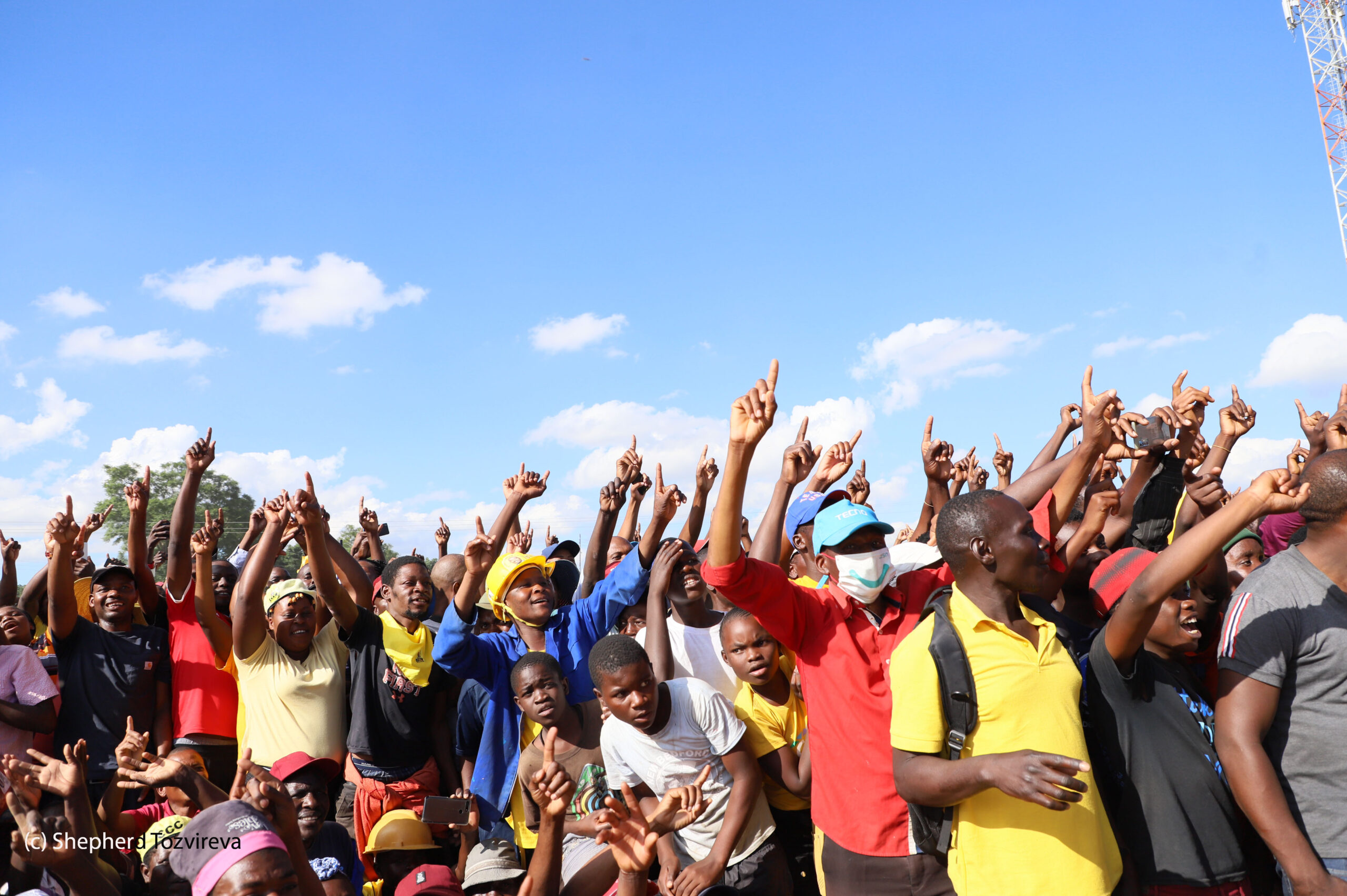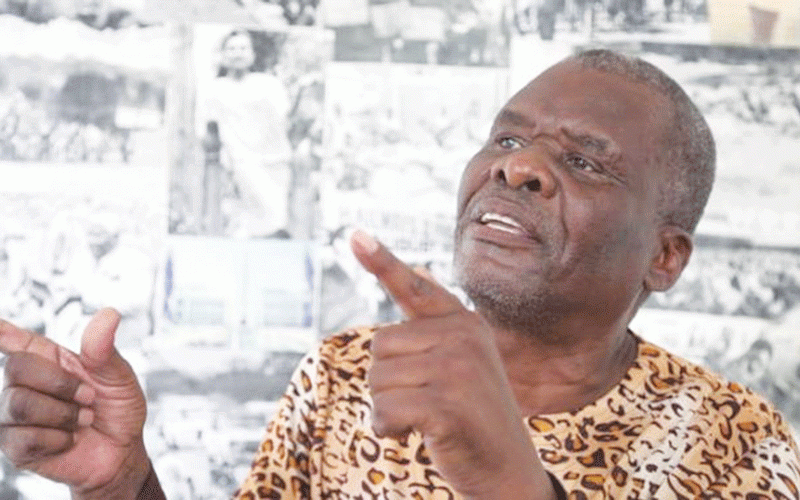
Youth must fight for their future THE recent swearing in of new members of the Zimbabwe Electoral Commission is a clear indication of an impending brazen grand theft of the 2023 harmonised election.
Young people must not allow such theft of elections under their watchful eyes. They must reject it.
Instead of hiring people on merit, family affairs and nepotism are creeping in and killing the nation.
The youth are the vanguard of today’s leadership and not tomorrow’s leadership.
I would like to believe that Zimbabwe has now come of age and that we need a new youthful leadership which is in sync and congruent with current political, social and economic fundamentals under a different administration, not this current one which has thus far failed to move Zimbabwe forward.
Zimbabwe can be a better nation again if the youth are allowed to decide through electing capable leaders of their choice without being intimidated or threatened.
In the 2023 elections, the electorate must vote for ideas and candidates who are ready to serve the people other than serving their selfish, nefarious agendas.
The youth must be registered to vote and vote overwhelmingly against this current leadership and make sure they stop any rigging attempts by the ruling Zanu PF party.
- Chamisa under fire over US$120K donation
- Mavhunga puts DeMbare into Chibuku quarterfinals
- Pension funds bet on Cabora Bassa oilfields
- Councils defy govt fire tender directive
Keep Reading
The future belongs to them and they must safeguard it.
The level of suffering among the young people in the country deserves a regime change.
For too long, young people have been marginalised in political decision-making and they continue to be frustrated as they are always elbowed out of the mainstream economic spheres.
The youth have the power to change the political trajectory of the country if they unite.
They can change the political narrative as they constitute the majority of the population.
It is essential that young people are engaged in political decisions.
In Zimbabwe, the youth have no say in political discussions and their voices are always gagged by the old guard of the revolutionary party.
It is painful to see that since 1999 when the strongest opposition political party, the MDC, was formed to date, Zimbabwe has lost hundreds of youth as a result of politically-motivated violence, many of them being members of the opposition.
Jails are full of young people, many of whom have turned to crime after failing to find jobs and fend for themselves.
In new emerging democracies, the youth have played a key role in building nations and not as cannon fodder.
In Zimbabwe, the current status is vice-versa, the veterans are still holding on to positions of power and busy amassing wealth for their own relatives, forgetting that there are some young people who are not politically connected who also need to survive. – Leonard Koni
Africa can bank on transport sector to grow economy AFRICA is on the move in the air, on water, and terrestrial. Roads are in Tanzania empower farming communities’ economies.
East Africa is now advancing with state-of-the-art airports, and the newly constructed standard gauge railway in Kenya and Tanzania is transforming how people move over space and time.
The Entebbe Airport stands to transform Uganda’s movement over time as it advances to become an oil economy alongside Tanzania.
South Africa, one of the wealthiest countries, has the largest road network, 750 000km, while Tanzania, East Africa’s competitive economy, has more than 86 000km of roads.
In the current economic scenario, where uncertainty brought by economic shocks from the pandemic and political tensions force nations to expand their horizon of influence, the past years have shown why African infrastructures must be robust and conducive to enhancing value creation.
Whoever moves fast and swiftly dominates the economic conversation. South Africa, Kenya, Namibia and Nigeria are among the top African nations with more robust economies.
However, in the Tanzanian context, road transport is the most widely used form of transport in Tanzania, carrying around 90% of the passengers and 75% of the freight traffic in the country.
Africa has moved past the days of playing catch-up with the developed world. The region is now expanding its own sustainable and tailored economic system that suits its environment and demands over space and time.
In that line, transport systems are evolving. Gone are the days when road networks were the only means of movement over space and time. Kenya and Tanzania are changing that narrative as advanced railways and aircraft move people and cargo 24/7, saving time and enhancing productivity,
The African Continental Free Trade Area (AfCFTA) is one of Africa’s customised approaches in the region’s economic arsenal. It is expected to increase intra-African trade in transport services by nearly 50%, according to Economic Commission for Africa (ECA) estimate.
The United Nations notes that AfCFTA requires at least 1 844 000 trucks for bulk cargo and 248 000 for container cargo by 2030. This gap is necessary for the region to revitalise its roads, railway, waterways and air networks to bank on the latter.
The ECA estimates indicate that with AfCFTA, over 25% of intra-Africa trade gains in services would go to transport alone, and nearly 40% of the increase in Africa’s services production would be in transport. – Afrikan
Informal traders should attend all stakeholder meetings VENDORS Initiative for Social and Economic Transformation (Viset) recently convened a multi-stakeholder feedback meeting at Chirodzero Business Centre, ward 4, Showgrounds in Domboshava.
The meeting saw informal traders, ward councillor, church leaders, traditional leaders and government officials being presented with findings from a community survey that had earlier been undertaken by VISET.
The majority of informal traders are operating from undesignated sites, with active age groups being 20-45 years, and mostly dealing in farm produce and second-hand clothing.
The survey findings are a critical knowledge product for the Goromonzi Rural District Council in coming up with appropriate solutions to development challenges in the geographically vast district.
Central government should fully implement the devolution principle to enable each ward to determine its own developmental priorities.
Councils should push for audits to establish where amounts being paid by informal traders who constructed their own stalls are being channelled towards.
Informal traders must unite in their diversity of trade in order for them to benefit fully from facilities on offer by the Women Affairs, Community and Small to Medium Enterprise Development ministry and financial institutions.
Activities such as the one conducted by Viset have been instrumental in getting informal traders to get an audience with solution holders, something which was hitherto impossible despite extending invitations.
There should be continued interactions with all stakeholders in order to ensure that informal traders get maximum benefits from national empowerment programmes.
The majority of participants were women, which is a plus. In fact, an informal economy women’s hub has been created in order to focus on the unique needs of women in the sector who face challenges such as unpaid care work, long working hours, unregulated conditions of service and unresponsive service delivery at both local and national level.
All stakeholders are advised to attend all full council meetings in order for all to ensure their concerns are taken on board and that they speak with one voice. – Viset






